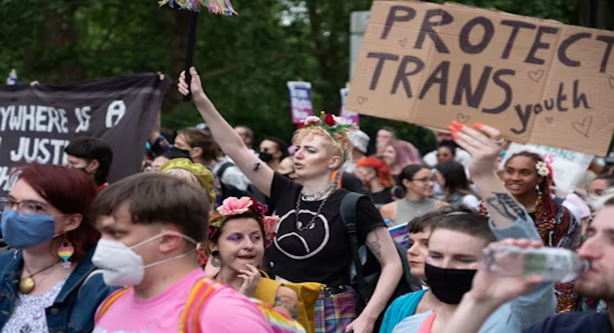
Flowing with pride - Menstruation for All
Share
Embracing Diversity: Menstruation Beyond Gender Norms
For many individuals classified as female at birth, the menstrual cycle is a normal aspect of life. It signifies the entry into womanhood and the health of the reproductive system in the body. Menarche, the term for a girl's first menstruation, is even hailed by many as a milestone toward adulthood and possible motherhood.
Menstruation, however, can be a different experience for transgender males and other people who identify as gender nonconforming. Rather than being happy, many people are uneasy and upset. They experience dysphoria, anxiety, and even sadness when they get their period because it serves as a constant reminder that their body does not conform to their gender identity.

Menstruation is a natural and biological process that is not bound only to women but to people of all genders. Our societal norms and cultural expectations create barriers for menstruating individuals who do not identify as cisgender women. It must be recognized that menstruation is not exclusive to women and that people of all genders can experience menstruation.
Understanding the Importance of Period Inclusivity
Period inclusivity is crucial for creating a society where menstruation is celebrated and normalized. It involves recognizing that gender is not a fixed criterion for periods and that menstruation is a biological process that affects people who possess a functioning uterus, regardless of their gender identity.
Breaking Down Barriers and Stigma
The period positivity movement aims to break down the silence and stigma surrounding menstruation by promoting education, awareness, and destigmatization. This movement encourages open conversations about menstruation, challenging societal norms that lead to period shaming and exclusion.
Language plays a significant role in shaping societal perceptions. Using gender-neutral terms like "people who menstruate" or "menstruators" can help make vital health information accessible to all who need it, regardless of their gender identity. It is essential to recognize that menstruation is not a "women's issue" but a health issue that affects people of all genders.
Education and Awareness
Education is key to promoting period inclusivity. Comprehensive menstrual education in schools is crucial for fostering period positivity and ensuring that young people have the knowledge and understanding they need to navigate menstruation confidently. It is also essential to educate people about the diverse experiences of menstruation, including those of transgender men, non-binary individuals, and intersex individuals.
Access to Products and Services
Access to menstrual products and services is another critical aspect of period inclusivity. It is essential to ensure that all menstruators have access to affordable or free menstrual products, regardless of their socio-economic status. Additionally, providing gender-neutral restrooms with period products can help create safer and more inclusive spaces for menstruators.

Supporters and healthcare professionals must be aware of these difficulties and handle the subject delicately. Medical practitioners must understand how to treat menstruation while honoring the patient's gender identification. This covers talking about alternatives including period suppression, thinking about fertility requirements, and investigating pregnancy and contraception.
The interest in transgender healthcare is rising, even though there is still much to learn. Better support for transgender males and other gender-nonconforming people coping with menstruation is being made possible by increased research and understanding. Through compassionate and empathetic handling of these matters, we can guarantee that each person is valued and encouraged on their path.
Conclusion
Embracing diversity and inclusivity in menstruation is crucial for creating a society where menstruation is celebrated and normalized. By recognizing that menstruation is not exclusive to women and by promoting education, awareness, and destigmatization, we can work towards a future where menstruation is no longer a topic of shame but one of empowerment and pride.
